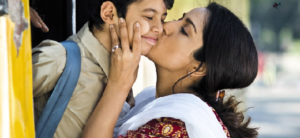Mum’s the word ”“ which nationality loves mum the most?
Flowers and chocolates might seem like standard gifts for Mother’s Day, however for many migrant communities, remittance numbers back home spike
For migrant communities in Australia, particularly those from developing countries, remittances back to home countries increase significantly around milestone events, but particularly Mother’s Day, according to data by money transfer service, WorldRemit.
The data shows that of all nationalities, Ghanaians send the most airtime transfers on Mother’s Day ”“ in fact, 23% more compared to an average Sunday, followed by South Africans who send 17% more airtime transfers on average.
The data also shows that Indians are the most generous towards their mothers around this time ”“ on average, sending AUD$258 more on Mother’s Day compared to an average Sunday.
The research – based on an analysis of WorldRemit’s top receiving countries in 2015 – demonstrates the culturally significant role that mothers plays in diaspora communities.
For many developing countries, the role of the mother is often beyond caring for her direct family, but her community and neighbours as well. In the south of Ghana for example, communities will often appoint a ”˜Queen Mother’ or female chief who is responsible for the welfare of women and children in the community, as well as social and economic change. Held in high regard, this demonstrates why Ghanaians place so much emphasis on Mother’s Day.
In India, a mother is a source of life and for children it is important to continue to contribute to your mother, which makes sending money back home an important practice for Indian diaspora communities.
Alix Murphy, Senior Mobile Analyst at WorldRemit said “We typically always see a spike with people sending money home for big calendar events such as Christmas, but our data shows Mother’s Day is also a very popular time to send for many people living in the diaspora. It’s quite humbling to see that many migrants are working and contributing to society so that they can take care of their mothers and their families back home.
“For many in the diaspora, sending money back to their home country is as much of a cultural reconnection for them as it is a lifeline for their receivers.”
One example of this is Lizzy Nyamhosti, who lives in mining community Middlemount, Queensland and sends money back home to her mother in Zimbabwe. Her mother, who lives in a rural and remote area, relies on remittances from Lizzy to provide support for basic needs for her and her family.
The WorldRemit app lets people send money straight from their smartphone, instead of having to travel to a money transfer agent. Those receiving money”“ often in developing countries – can collect the funds as Mobile Money, bank transfer, for cash pickup or as a mobile airtime top-up.
WorldRemit’s service is available to senders in 50 countries. It offers transfers to more than 125 destinations across Europe, Asia, Africa, Australia and the Americas. WorldRemit customers send an average of 400,000 transfers every month.
Short URL: https://indiandownunder.com.au/?p=6822

